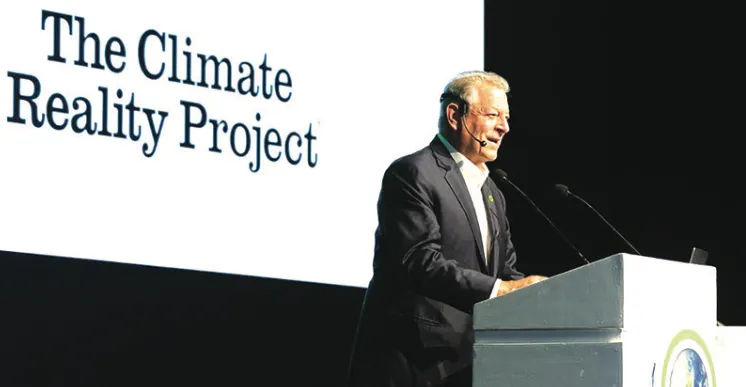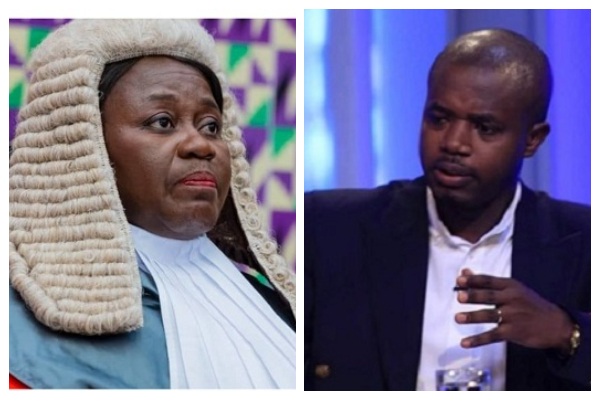On March 11, 2025, I received an invitation to attend the Climate Reality Leadership Corps training scheduled for April 5 at the Holiday Inn, Aerocity New Delhi International Airport. Until a day before the event, I was still unsure about attending. But by the evening of April 5, I found myself transformed — now a part of the global network of Climate Reality Leaders.
Looking back, missing this opportunity would have meant losing one of the most defining experiences of my life.What made it so powerful? It was the first time I witnessed a presentation so deeply rooted in science, evidence, and moral urgency — a compelling blend of data, real stories, solutions, and a call to action. The session began with a simple but moving image of Earth and unfolded into a masterclass on the climate crisis by former U.

S. Vice President and Nobel Laureate Al Gore. For over two and a half hours, we were taken on a journey — the 2025 update of An Inconvenient Truth — filled with the latest climate science, global impacts, and scalable solutions.
Al Gore, a key figure in sparking the global climate conversation with his 2006 documentary An Inconvenient Truth, later founded The Climate Reality Project to build momentum for climate action. Today, his vision has united a diverse community of Climate Reality Leaders — activists, educators, scientists, artists, and change makers — all working toward a sustainable, just future.The training is more than just lectures; it’s an immersive learning experience.
Climate Reality Leaders are personally trained by Al Gore and supported by world-class scientists, policy experts, and communicators. The India and South Asia chapter hosted the April 5 training, bringing together participants from varied backgrounds to share perspectives and develop localized climate solutions.One of the most moving parts of the training was a panel on the Paris Agreement and South Asia’s journey since its signing.
Experienced Climate Reality Leaders including some who had participated in the Conference of Parties (COP) shared their stories and experiences as Climate reality Leaders. During a breakout session with Table No. 10, we discussed climate challenges specific to Jammu and Kashmir — declining saffron yields, shrinking wetlands and springs, melting glaciers, reduced water flow in the Jhelum, erratic rainfall, and disrupted agriculture and tourism.
These conversations weren’t just academic. They were deeply personal. I will always remember the insights shared by Nadeem, Niharika, Lalit, Gagan, Arun, Jatinder, Jagan, Adil, and others.
We highlighted the importance of regional approaches and local solutions, especially in fragile ecosystems like the Himalayas.One highlight was a skill-building session by Aditya Pundir, Director of The Climate Reality Project India and South Asia, on delivering compelling climate presentations. At the end of the day, I received the symbolic green pin — a small emblem, but a big reminder that I now carry a responsibility.
The training offers more than awareness; it empowers. It deepens understanding of the climate crisis and the fossil fuel interests delaying action. It builds skills in public engagement, campaign planning, and advocacy.
It creates a network of peers — change-makers who collaborate, inspire, and support each other.And it raises the right questions in Climate Reality Leaders’ minds — uncomfortable yet necessary. For instance, how do we balance reducing livestock emissions in regions like Jammu and Kashmir, where livestock is a key economic and nutritional pillar? Why, despite climate pledges, are symbolic activities like painting shop-fronts prioritized to welcome international delegates, contributing to industrial pollution, when greener options like vertical gardens could have been used?As an anthropologist, I believe that traditional knowledge systems hold critical answers to the climate crisis, especially in underdeveloped areas.
Communities like pastoralists, who have long adapted to environmental variability, possess resilience that modern technologies often overlook. In the 2014 floods, the poorest and most marginalized suffered most, while those living in harmony with nature fared relatively better. Power plays an important role in the climate crisis.
Wealthy will be saved to some extent in the disasters due to the climate crisis, but the poor will be saved only if they keep up with their indigenous knowledge. Because indigenous knowledge helps you live with the uncertainties and in Jammu and Kashmir pastoralism is an example of this.Al Gore emphasized a fundamental truth: stories have the power to move people — and power.
If we are to overcome this crisis, we need to create stories stronger than those told by the powerful. Not fiction, but stories grounded in science, culture, and lived experience. People won’t simply understand the data.
It has never been like that. We need to create stories based on that data so that it is absorbed by the peoples’ minds. For Climate Reality Leaders, it is essential to tell these stories using local knowledge, making the global crisis relatable and urgent.
The Climate Reality Project in India and South Asia is already making strides through various initiatives:Green Campus Program: Helping over 465 educational institutions conserve energy, manage waste, and promote sustainability.Teacher Training Program: Equipping over 17,000 teachers and impacting 240,000+ students with climate and sustainability education.Youth4COP: Preparing young leaders from the Global South to engage in climate negotiations and policymaking.
Youth for Earth: Empowering youth to drive sustainability projects and become advocates of positive change through the ICSE platform.Becoming a Climate Reality Leader is not a badge — it’s a commitment. A call to question, to advocate, and to act.
Because in the fight against climate change, we cannot wait for someone else to save us. The power lies within us — to listen, to learn, and to lead.Irfan Ali Banka is a Climate Reality Leader and PhD scholar in Anthropology at Panjab University, Chandigarh.
He chairs the J&K RTI Foundation. The post From Witness to Warrior: Joining the Climate Reality Movement appeared first on Greater Kashmir..
Politics

From Witness to Warrior: Joining the Climate Reality Movement

It creates a network of change makers who collaborate, inspire, and support each other.The post From Witness to Warrior: Joining the Climate Reality Movement appeared first on Greater Kashmir.














